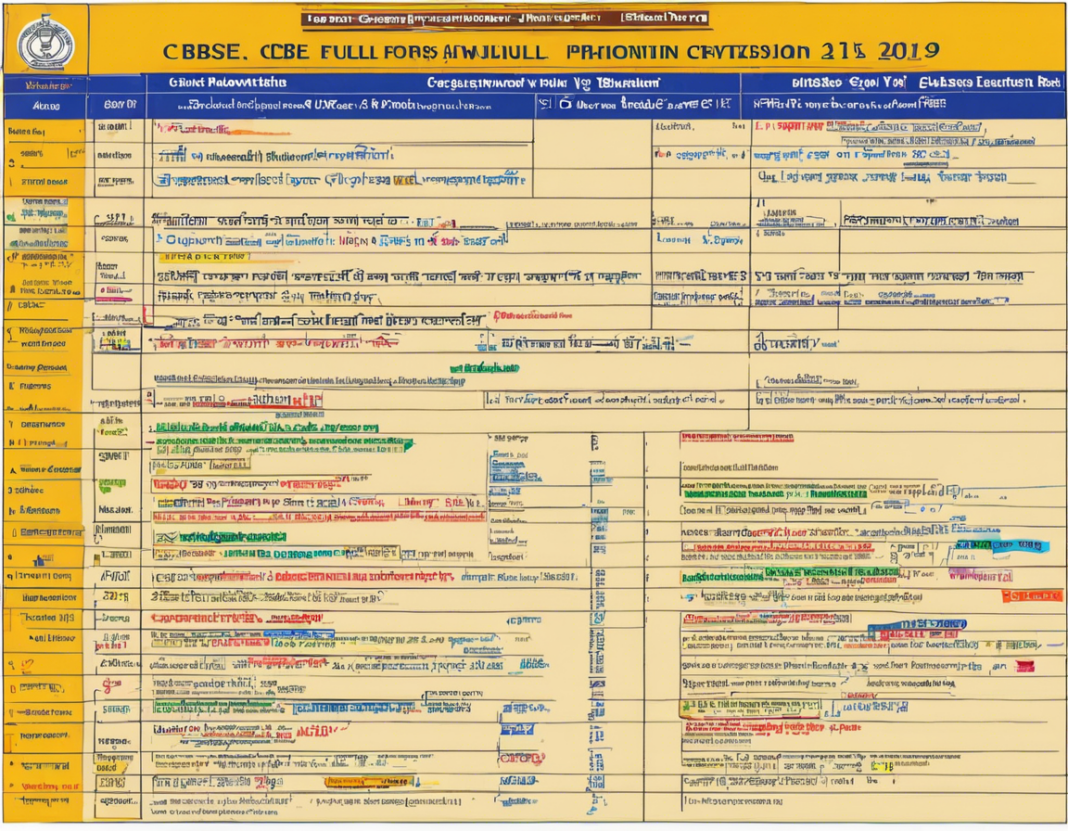If you are a student in India or if you have been associated with the Indian education system, you must have come across the acronym CBSE. CBSE stands for Central Board of Secondary Education and is one of the most well-known education boards in India. It is a national level board of education under the Union Government of India. Established in 1962, the board’s primary function is to regulate and supervise the development of secondary and higher secondary education in India.
CBSE is responsible for conducting examinations for classes 10 and 12, prescribing the syllabus and curriculum for various classes, and ensuring the smooth functioning of affiliated schools across the country and even in some foreign countries. The board is known for its comprehensive and student-friendly syllabus, which aims to provide a holistic education to students and prepare them for various competitive exams as well as real-life challenges.
What is the Role of CBSE in Indian Education System?
The CBSE plays a crucial role in shaping the educational landscape of India. Some of its key functions include:
1. Curriculum Development:
- Designing and updating the curriculum for classes 1 to 12.
- Developing textbooks, instructional materials, and resources for schools.
2. Conducting Examinations:
- Organizing board exams for classes 10 and 12.
- Conducting national level entrance exams like JEE Main and NEET.
3. Affiliation of Schools:
- Granting affiliation to schools across the country and abroad.
- Monitoring and regulating the functioning of affiliated schools.
4. Teacher Training and Development:
- Providing training programs for teachers to enhance their skills.
- Conducting workshops and seminars for professional development.
5. Continuous Evaluation:
- Encouraging schools to adopt continuous and comprehensive evaluation methods.
- Promoting a holistic approach to assessing students’ learning outcomes.
CBSE focuses on promoting a stress-free learning environment, integrating innovative teaching methods, and embracing technology in education to ensure the overall development of students.
Advantages of Studying in a CBSE Affiliated School
Studying in a CBSE affiliated school has several benefits for students. Some of the advantages include:
1. Recognized Board:
- CBSE is a well-recognized and prestigious board in India and abroad.
- Its curriculum is aligned with national and international standards.
2. Focus on All-round Development:
- CBSE promotes a holistic approach to education.
- It emphasizes co-curricular activities, sports, and life skills along with academics.
3. Comprehensive Syllabus:
- The CBSE syllabus is structured to provide a strong foundation in all subjects.
- It helps students prepare for competitive exams like JEE, NEET, etc.
4. Student-friendly Evaluation:
- The board follows a student-friendly evaluation system.
- It focuses on continuous assessment rather than rote learning.
5. Smooth Transition:
- CBSE provides a standardized education system across all its affiliated schools.
- It makes it easier for students to transition between schools without facing major academic disparities.
Overall, CBSE education aims to foster critical thinking, creativity, and problem-solving skills among students, preparing them for higher education and future challenges.
Frequently Asked Questions (FAQs)
1. What does CBSE stand for?
CBSE stands for Central Board of Secondary Education.
2. How many schools are affiliated with CBSE?
CBSE has over 25,000 schools affiliated with it in India and abroad.
3. Is CBSE syllabus the same for all schools?
Yes, the CBSE syllabus is uniform for all its affiliated schools across the country and abroad.
4. What are some popular competitive exams conducted by CBSE?
CBSE conducts board exams for classes 10 and 12 along with national level entrance exams like JEE Main and NEET.
5. How can schools get affiliated with CBSE?
Schools seeking affiliation with CBSE need to follow the prescribed guidelines and fulfill the eligibility criteria set by the board.
6. Does CBSE promote extra-curricular activities?
Yes, CBSE emphasizes the importance of co-curricular activities like sports, arts, music, and dance for the all-round development of students.
7. Is CBSE syllabus more beneficial for competitive exams?
CBSE syllabus is structured to prepare students for various competitive exams like JEE, NEET, CLAT, etc., by providing a strong academic foundation.
8. How does CBSE evaluate students?
CBSE follows a comprehensive evaluation system that includes both formative and summative assessments, promoting continuous learning and skill development.
9. Does CBSE offer vocational courses?
Yes, CBSE offers vocational courses at the senior secondary level to equip students with practical skills relevant to various industries.
10. Can students switch boards after studying in a CBSE school?
Students can switch boards after studying in a CBSE school; however, they may need to adapt to the new curriculum and evaluation system of the new board.
In conclusion, CBSE plays a pivotal role in providing quality education to students in India. Its student-centric approach, comprehensive syllabus, and emphasis on holistic development make it a preferred choice for many parents and students across the country. By promoting innovation, critical thinking, and continuous evaluation, CBSE is preparing students for a successful future in an ever-evolving world.
